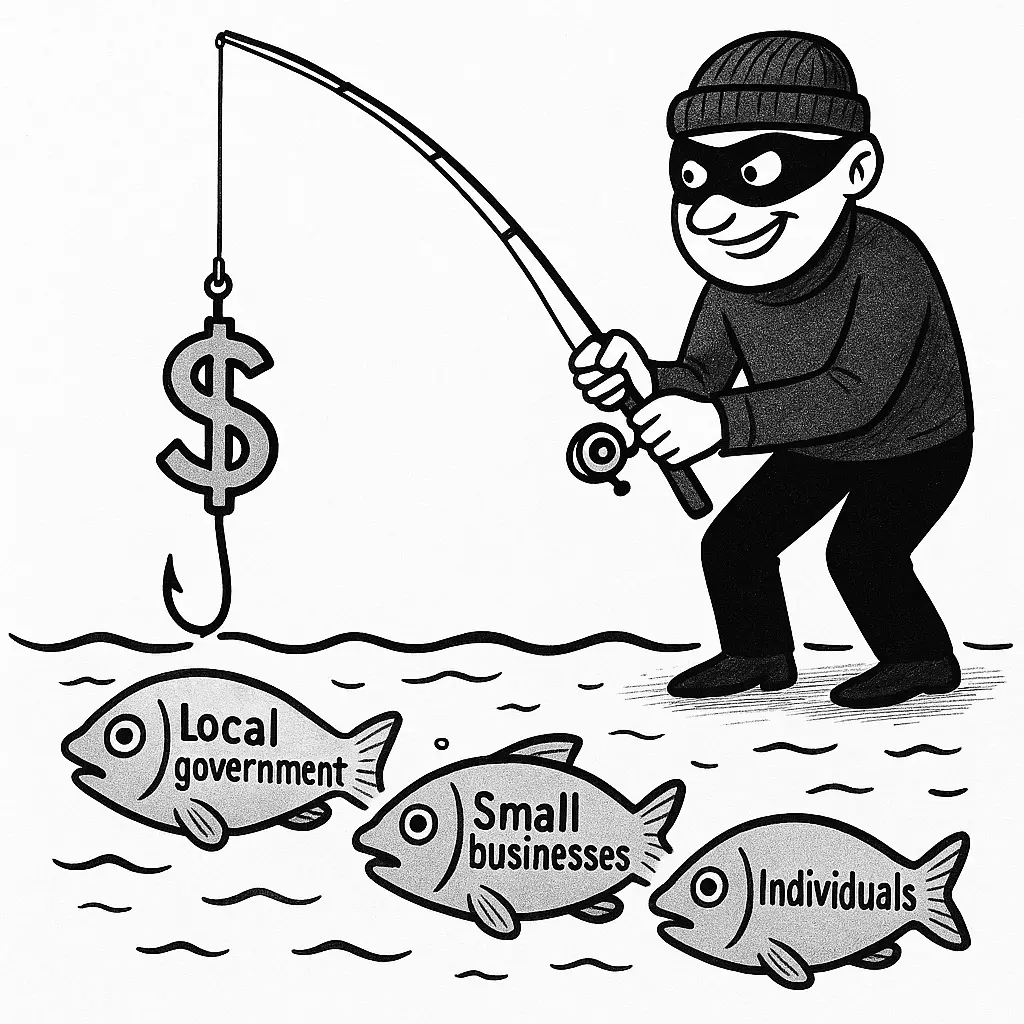A Local Reminder: Phishing Isn’t Just a “Big City” Problem
A public agency in our area recently fell victim to a phishing attack that led to the loss of over a quarter of a million dollars ($250,000+). The funds were part of a grant meant to improve safety at area schools — but instead were mistakenly sent to a scammer after a fraudulent email impersonated a trusted vendor.
The mistake was reportedly caught in short order. While the agency has advised the public that the incident is under investigation and that efforts are underway to recover the funds through insurance, it’s sadly possible the money may never be retrieved. It’s a tough and costly situation — especially when the funds were meant for something that could have directly benefited the public.
Though the amount lost was unusually high, the occurrence of this kind of incident is unfortunately not unusual.
This post isn’t intended to point fingers. We’re sharing it because it happened close to home — and because we hope to raise awareness that these kinds of attacks are becoming more common, and they’re hitting places you might not expect.
What We See
At SatCom & Computers, we work with an array of government and public agencies, small and mid-size businesses, non-profits, churches, and individual clients across a four-parish area and beyond. We’ve seen many phishing and ransomware attacks — some successful, and others caught in time by vigilant clients who contacted us as soon as something seemed suspicious.
Phishing and ransomware scams don’t just go after large corporations. They frequently target private companies, small and mid-size public agencies, churches, and individuals — often using emails that appear entirely legitimate and arrive at just the right time. These scams have grown more sophisticated, and they’re often timed to strike when someone is busy, distracted, or covering unfamiliar duties.
The risk is even greater when teams are stretched thin. Many organizations — especially in the public sector — are already doing more with less, often without dedicated IT support or formal cybersecurity policies.
What We Can Do to Help
We’re not trying to scare anyone — just to help folks in our community be prepared. Here’s how we assist local clients in strengthening their defenses:
-
Security Awareness Training
Practical, down-to-earth training for your staff, based on real scenarios — not generic videos. -
Foundational Safeguards
We help implement simple but effective protections — such as account verification processes, smarter email practices, and secure remote access setups. -
Incident Planning
If something goes wrong, having a plan in place can make a huge difference. We work with clients to be ready — not reactive. -
Ongoing Support
Whether you have an IT team or none at all, we’re here to keep things secure, updated, and backed by someone local you can call.
Why It Matters
These scams don’t just cost money. They delay projects, damage trust, and often go unreported due to embarrassment. In the recent incident, the stolen funds had been earmarked for enhanced school security. Although the event occurred months ago, it wasn’t disclosed until details began to leak.
Whether you’re running a business, managing funds for a church or agency, or just handling things at home, the risks are real — but they’re manageable with the right tools, habits, and support.
If you ever receive an email that doesn’t feel quite right — even if you just have a hunch — don’t hesitate to call us at (318) 256‑1213. We’re always happy to take a look at no charge. Or, if it’s easier, schedule a time to talk at your convenience.
It’s always better to ask than to wish you had.
